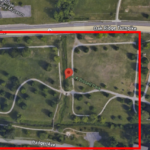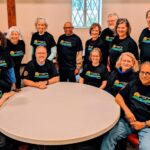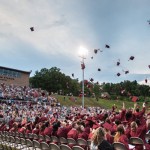Educator Chap Percival will discuss the upcoming August 21 solar eclipse during a May 18 lecture in Oak Ridge.
Percival will be the featured speaker at this year’s Annual Dick Smyser Community Lecture Series.
The free lecture is scheduled for Thursday, May 18, at the American Museum of Science and Energy, which is at 300 South Tulane Avenue in Oak Ridge. A reception will be held in the museum lobby starting at 5:30 p.m., and the lecture will start at 6 p.m. in the museum auditorium.
A solar eclipse occurs when the moon passes between Earth and the sun, blocking at least part of the sun as viewed from some areas of Earth. During a total solar eclipse, the moon completely obscures the sun so that only the sun’s corona is visible for a moment in time. On August 21, 2017, a total solar eclipse will be visible along a roughly 67-mile-wide path across the United States, from Oregon to South Carolina, a press release said.
During the May 18 lecture, national park rangers will describe to the audience the National Park Service’s plans for viewing the eclipse at Manhattan Project National Historical Park, Obed Wild and Scenic River, and Big South Fork National River and Recreation Area. The presentation will also provide advice on how to safely view the eclipse, weather factors, and logistics to get the most out of the eclipse, the press release said.
It said Percival is a lifelong educator who lives in Sarasota, Florida. He has a bachelor’s degree in mathematics and physics from Taylor University, an MAT in Planetarium Education from Michigan State University, and an M.Ed. in Instructional Technology from the University of Virginia. Percival has been involved in astronomy education since 1969 as a classroom teacher, club sponsor, and planetarium director. He has volunteered with the National Park Service as a sky interpreter and has a passion for sharing his knowledge of things in the sky that amaze, astound, and awe him, the press release said.
The event is co-sponsored by the Oak Ridge Isochronous Observation Network (ORION), Friends of Oak Ridge National Laboratory, and the NPS. The co-sponsoring organizations will also discuss August 21 activities planned to make viewing the eclipse more enjoyable. David Fields, president of ORION and director of the Tamke-Allen Observatory at Roane State Community College, will describe their capabilities.
For more information on the May 18 lecture or the August 21 eclipse, please call (865) 576-6767.
More information will be added as it becomes available.
Do you appreciate this story or our work in general? If so, please consider a monthly subscription to Oak Ridge Today. See our Subscribe page here. Thank you for reading Oak Ridge Today.
Copyright 2017 Oak Ridge Today. All rights reserved. This material may not be published, broadcast, rewritten, or redistributed.













NationalEclipse.com says
As the date of the August 21 eclipse draws near, keep this important safety information in mind: You MUST use special eclipse safety glasses to view a partial eclipse and the partial phases of a total eclipse. To do otherwise is risking permanent eye damage and even blindness. The ONLY time it’s safe to look at a TOTAL eclipse without proper eye protection is during the very brief period of totality when the Sun is 100 percent blocked by the Moon. If you’re in a location where the eclipse won’t be total, there is NEVER a time when it’s safe to look with unprotected eyes. NEVER attempt to view an eclipse with an optical device (camera, binoculars, telescope) that doesn’t have a specially designed solar filter that fits snugly on the front end (the Sun side) of the device. Additionally, never attempt to view an eclipse with an optical device while wearing eclipse glasses; the focused light will destroy the glasses and enter and damage your eyes.